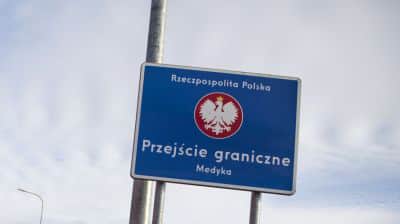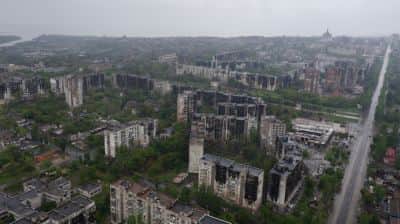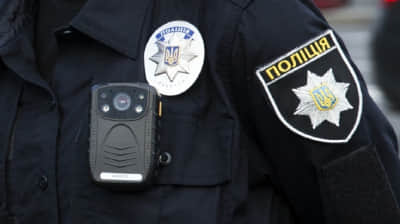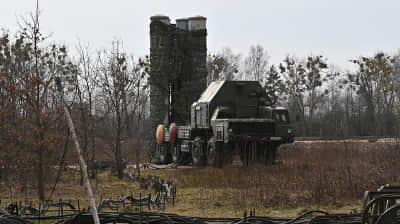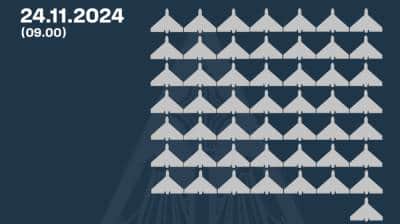Russia has no capacity to sustain multiple major offensives – ISW
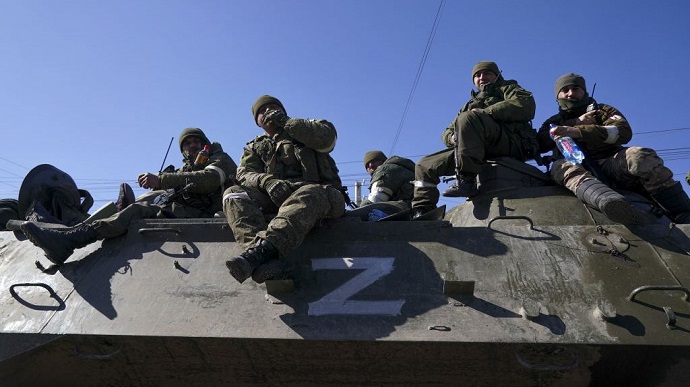
The Institute for the Study of War (ISW) has said that Russia has not shown the capacity to sustain multiple major offensive operations at once.
Source: ISW report from 4 February 2023
Details: The ISW analysts concluded that Russia’s decisive offensive operations are unlikely to target the city of Zaporizhzhia from the western Donetsk – Zaporizhzhia frontline, as the Russian military continues to prepare for an offensive in western Luhansk Oblast.
ISW continues to observe Russian transfers of military equipment and elite units and the preparations of logistics in occupied Luhansk Oblast that support Western, Ukrainian, and Russian forecasts for the western Luhansk Oblast – Bakhmut offensive.
Russian forces are also intensifying attacks on Bakhmut while neglecting frontlines around the city of Donetsk.
"The Ukrainian military has reported that Russian forces have not massed a powerful enough strike group to conduct an offensive in the Zaporizhzhia direction," the ISW report suggests.
Meanwhile, Russian sources have been claiming that Russian forces have been making territorial gains in Zaporizhzhia Oblast in late January. The ISW believes that these claims were likely an information operation aimed at dispersing Ukrainian forces ahead of the "decisive offensive in the east".
The ISW analysts believe that Russia has failed to show the capacity to sustain the multiple major offensive operations that would be necessary to simultaneously reach the Donetsk Oblast administrative borders and take the city of Zaporizhzhia.
The Russian Ministry of Defense (MoD) has launched a series of efforts to restructure and consolidate the mismatched blend of irregular forces supporting Russia’s war in Ukraine into Russia’s conventional military forces.
The Russian MoD might be taking some steps to integrate volunteer battalions into its framework.
The ISW also said that the Russian MoD might be rushing to integrate and professionalise irregular forces into its conventional structure while Chief of the Russian General Staff Army General Valery Gerasimov has the favour of Russian President Vladimir Putin.
According to the ISW, Russian irregular forces in Ukraine include contract soldiers, mobilised soldiers, the forces of the self-proclaimed and Russian-backed Donetsk and Luhansk "People’s Republics", volunteer battalions, Russian Combat Army Reserve (BARS) forces, Cossack and Chechen units, and Wagner Group mercenaries.
These formations have different objectives, limitations, pre-requisites, hierarchies, and legal statuses. The Russian MoD has initiated several professionalisation efforts since Gerasimov’s appointment as the Commander of the Joint Grouping of Forces in Ukraine on 11 January 2023, and the ISW said it was logical that the Russian MoD would seek to cohere the current odd mix of forces into a more traditional structure.
However, these integration efforts coincide with the launching of decisive offensive operations, and will therefore likely generate short-term disruptions and pushback among units needed for those operations, the ISW predicted.
"Undertaking complex structural and administrative changes while launching major offensive operations is an unusual step, however appropriate the changes. Gerasimov likely feels that he has a limited window to make changes to Russian forces before the impossibility of achieving the grandiose objectives he has apparently been set causes him to lose Putin’s favor once again," the ISW concluded.
Key takeaways from the ISW report:
- A Russian decisive offensive operation is unlikely to target the city of Zaporizhzhia from the western Donetsk–Zaporizhzhia frontline.
- Russian forces have not shown the capacity to sustain multiple simultaneous large-scale offensive operations that would be necessary to reach the administrative borders of Donetsk Oblast and seize the city of Zaporizhzhia.
- The Russian Ministry of Defense (MoD) has launched a series of efforts to restructure and consolidate the mismatched blend of irregular forces supporting Russia’s war in Ukraine into Russia’s conventional military forces.
- The Russian MoD’s decision to undertake significant structural reform while preparing for a major offensive in eastern Ukraine likely represents an effort by Russian Chief of the General Staff Army General Valery Gerasimov to complete reforms while he has Russian President Vladimir Putin’s often fleeting favour.
- Wagner Group financier Yevgeny Prigozhin is overcompensating for his declining influence by continuing to frame himself as the sole victor in the Bakhmut area.
- Russian and Ukrainian officials exchanged 63 Russian prisoners of war for 116 Ukrainian prisoners of war.
- Russian forces conducted limited offensive operations northwest of Svatove and continued offensive operations around Kreminna.
- They also continued offensive operations around Bakhmut and Vuhledar but have slowed the pace of their offensives along the western outskirts of Donetsk City.
- Ukrainian forces continue to target Russian military assets in the east (left) bank in Kherson Oblast.
- Russian authorities are attempting to reinvigorate force generation efforts by drawing from broader pools of manpower.
Journalists fight on their own frontline. Support Ukrainska Pravda or become our patron!
